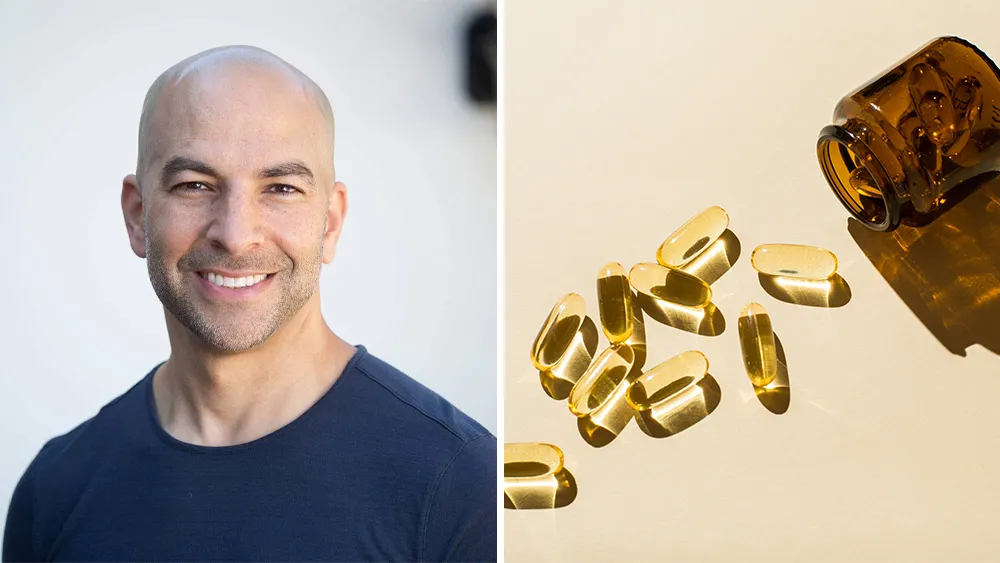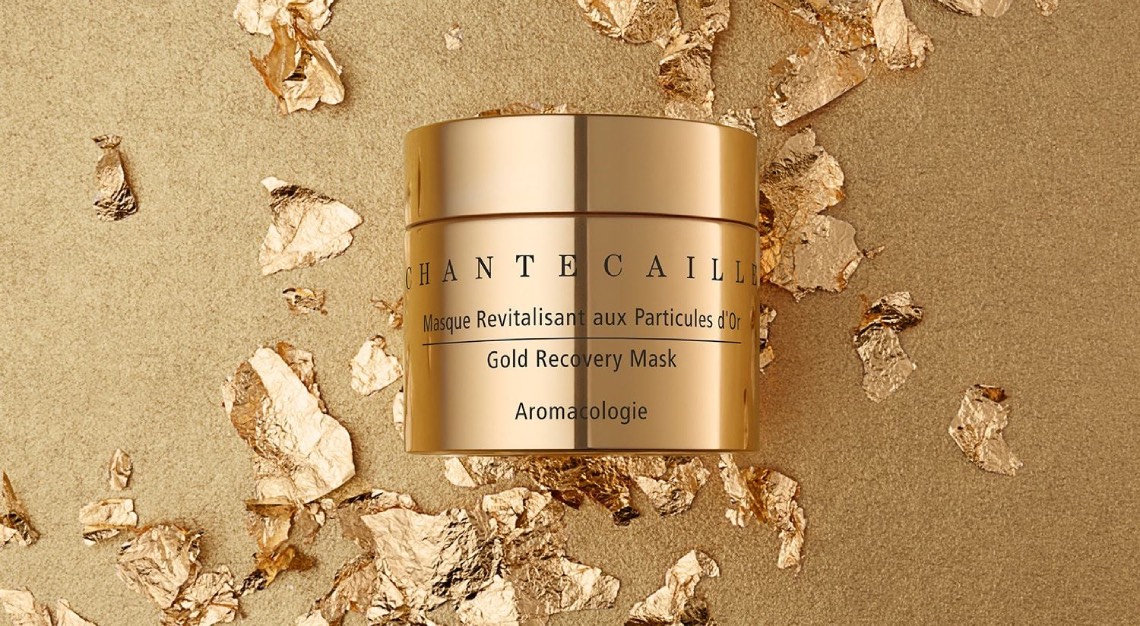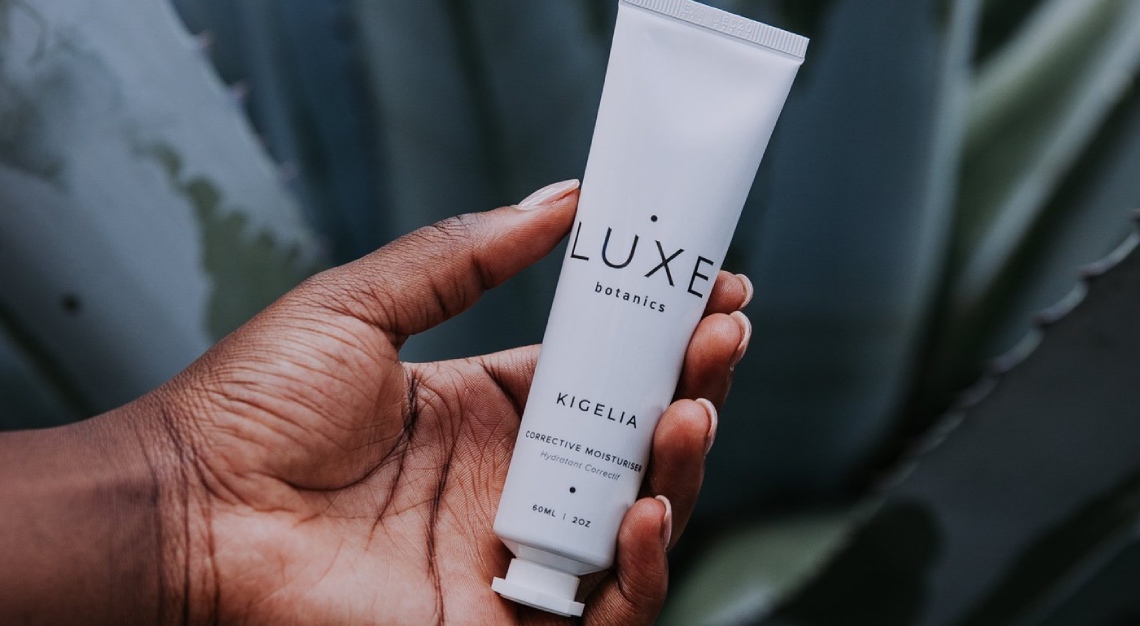Supplements that cover the healthspan gamut, from heart health to anti-inflammatories
If you’re interested in increasing your healthspan to extend your lifespan, Dr. Peter Attia is likely on your radar. The longevity physician has studied years of extensive research on how we can live stronger, better, and longer—much of his plan for prolonging youth is outlined in his best-selling 2023 book Outlive: The Science & Art of Longevity—but a query Attia routinely fields is what’s in his supplement and vitamin stack.
It’s a question Attia finds odd—“Why do people care what supplements I take?” he mused on a recent episode of his The Drive podcast. His rationale is that what works for him may not work for you; your body chemistry differs from his, naturally, and the efficacy of each supplement or vitamin will thus differ.
Another caveat: supplement stacks and vitamins can’t overcome a subpar lifestyle or diet. There’s no magic pill—or sequence of supplements—to optimise and invigorate your health if you’re not actively eating sensibly, exercising regularly, and getting ample restorative sleep. Before taking anything from the below list, it’s a great idea to talk to your doctor first.
Still, if you want to adopt Attia’s supplement and vitamin regimen, all his options are tried, true, and tested—and bolstered by years of research. A fair amount of these supplements are aimed at improving cardiovascular health, since Attia posits a healthy heart is a core pillar of longevity. Here’s what Dr. Peter Attia takes daily.
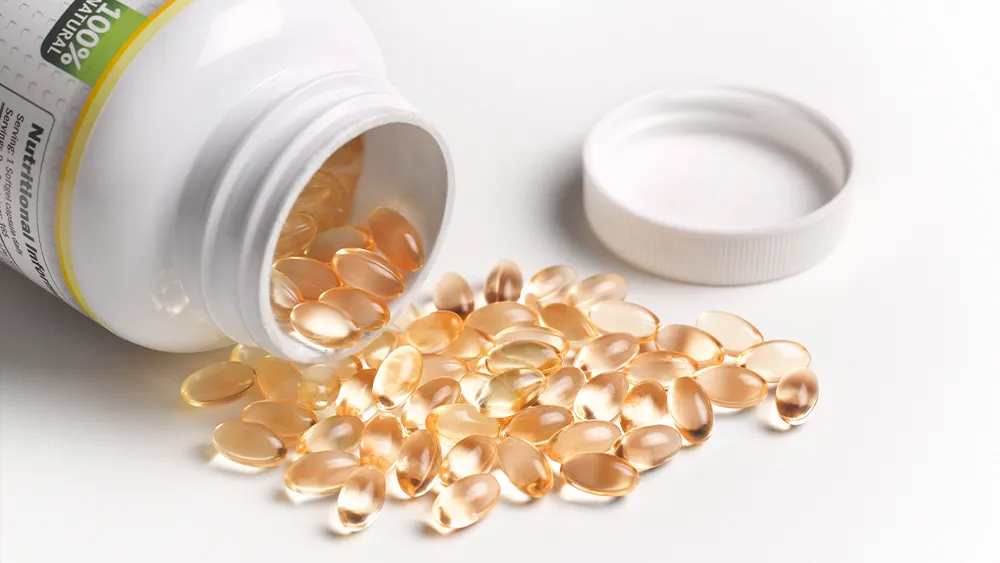
Vitamin D
Attia describes the risk with vitamin D as “insanely low.” Vitamin D is responsible for helping the body absorb calcium, in turn bolstering bone strength, and aids in getting extra phosphorus into our system. It can support muscular strength, and acts as an anti-inflammatory. It’s a little powerhouse of a vitamin, though regular sunlight exposure can help boost your vitamin D levels, too.
While he suggests your intake of vitamin D varies based on your individual health condition and diet, Attia personally takes a supralogic dose, around 5,000 IU, or about 125 micrograms (“mcg” on the bottle’s label) per day. Is 5000 IU of vitamin D excessive? It can be, per Harvard Health, which says doses that high could cause other health risks and obfuscate the vitamin’s actual benefits.
Omega-3 Fish Oil Capsules
There are two basic Omega-3 fatty acids that are excellent for increasing heart health and bettering your cholesterol, EPA and DHA. These fatty acids, which you can get naturally from including heaps of leafy greens, fatty fish such as salmon, and a variety of nuts, also may combat inflammation, ramp up glutathione levels, and modulate cortisone.
“I’m taking four of these capsules a day,” Attia reveals, and at 1200 mg per capsule, “I’m taking roughly two grams of EPA a day and probably a gram and a half of DHA.” Attia looks for the highest EPA concentration possible, found in the likes of Nature Made Fish Oil Softgels.
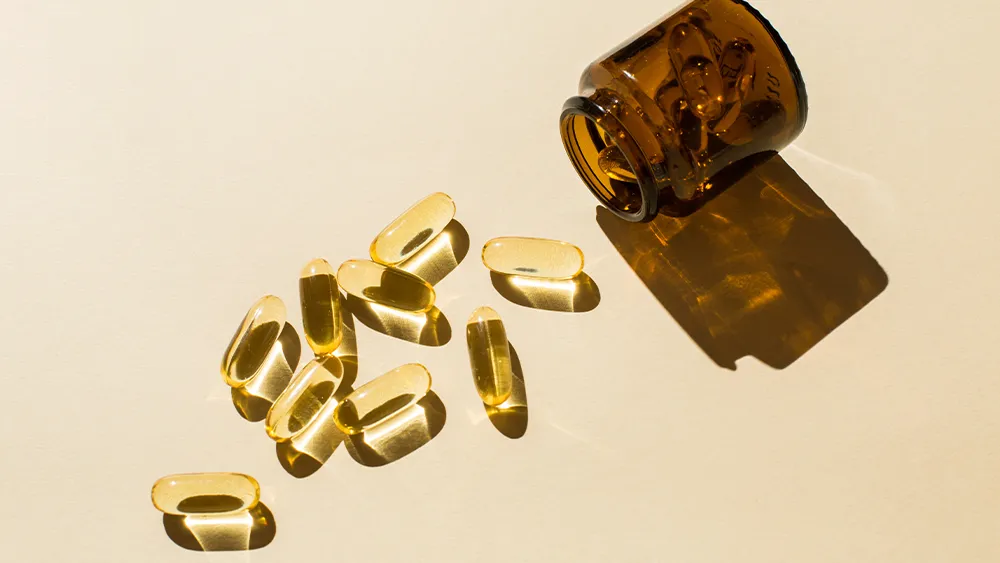
Vitamin B6
Attia used to take vitamin B6 every day, though he’s recently scaled back to only three times per week. His concern? Data showing too much vitamin B6 can lead to nerve damage, or neuropathy. Still, there are benefits to ingesting B6, largely around how happy you feel.
As Attia shared on an episode of his podcast, vitamin B6 gets your homocysteine back in line. Elevated levels of that amino acid are correlated to a higher risk for dementia, heart disease, and stroke, per Cleveland Clinic. Vitamin B6 also boosts your serotonin and other neurotransmitters, helping improve your mood and reducing depression anxiety, per a 2022 study.
Attia takes Pure Encapsulation’s B6 Complex, noting, “we don’t need nearly as much B6 as I thought we did, so I’ve lowered it to 50 milligrams, three times per week. You just have to be careful that you’re not overdoing it.”
Baby Aspirin
“I don’t think there’s an evidence-based reason why I should take a baby aspirin,” Attia admits. Yet he still does pop one per day. Research is indeed mixed as to whether baby aspirin has any benefits as a prophylactic, though there’s a clear benefit for individuals who’ve had a heart attack, stroke, or some other form of heart disease.
The issue is that while aspirin thins the blood—helpful for preventing clots or other heart issues—it can increase your risks of bleeding to death, hence why most doctors do not recommend it for people over the age of 60.
Attia’s closely monitoring the science around daily baby aspirin ingestion, saying “I’m always happy to reevaluate the use of this, and any supplement for that matter, in the presence of new data.”
Athletic Greens
Attia’s transparent about his connection to superfood powder supplement Athletic Greens; he serves as an advisor and he’s also an investor. He uses one scoop of AG1, the supplement company’s halo product. That’s a green powder consisting of more than 75 nutrients, including vitamins, minerals, probiotics, and digestive enzymes.
That green goodness doesn’t come cheap; it can start at US$79 per month and notch up from there. Joking that he “knows how the sausage is made,” Attia believes AG1 has precisely what he needs, and adds a scoop of this to water daily.
Glucose Control Probiotic
Attia takes two of these capsules each morning, alongside his AG1 scoop. “That’s kind of the first thing I consume,” he says. His trial of Glucose Control by Pendulum is a few months in, and he’s testing to see if the probiotic can help regulate his blood sugar levels when lab-tested.
Probiotics, generally, propagate a healthy gut microbiome, meaning your stomach inflammation is decreased. When you’ve got chronic gut inflammation, your body can become more resistant to insulin, the hormone that controls how your body processes sugar. This can, in theory, stave off diabetes.
Glucose Control is a pricey bottle, costing between US$165 and US$215 for 30 pills—meaning Attia’s two-capsules are running him around US$10—and is billed as a clinical grade probiotic aimed at managing type 2 diabetes. It’s got an extra strain of probiotic bacteria in there (clostridium, for the curious), which is noteworthy, as many probiotics merely contain one strain.
A Blend of Protein Powders
The aim, per Attia, is to ingest as much protein without overdoing the fat and carbohydrate calories. If you want to hear his exact approach, check out this AMA on his podcast where he talks about testing four different protein powders—two sweetened or flavoured, and two unsweetened.
Attia combines 25 milligrams of flavoured protein powder with 25 milligrams of unflavoured protein powder to reduce the sugars and calories over the overall shake he’s drinking. Sure, that Fruity Pebbles-flavoured protein powder sounds delicious—spoiler: it is; we’ve tested it—but to get a flavour profile reminiscent of childhood breakfasts, it’s hiding additives that inflate the carbohydrate and fat amounts, appreciably.
Attia doesn’t get into specific brands of preferred protein powder, though he notes he chooses quality whey isolate that doesn’t contain a significant amount of sucralose or other non-protein components. As for how much to take, that’s more a personal diet calculus. If you’re aiming to increase muscle mass, for example, you’d want to aim daily at around one gram of protein per pound of bodyweight.
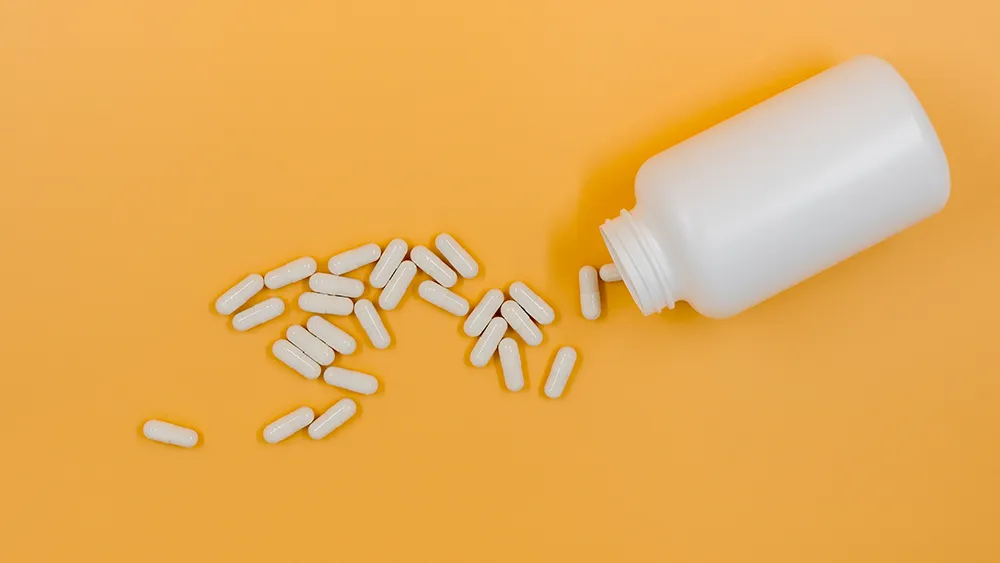
Magnesium
There are three magnesium types Attia takes: magnesium oxide, magnesium chloride, and magnesium L-threonate. Magnesium, elementally, benefits bone health, helps with muscle and nerve regulation, and may play a part in blood pressure control and reducing blood sugars. It also can aid cells reaping the maximum protein from whatever you’re eating, and turn that into energy.
Why the mixture of three magnesiums? “All in, I’m trying to get a gram of elemental magnesium in my system per day,” he says. And each magnesium variation is absorbed differently, and also affects your body in unique ways. Magnesium oxide is poorly-absorbed, though it can help with digestion. Attia takes 400 to 500 milligrams of magnesium oxide daily, when not fasting.
Attia also wants a more efficiently-absorbed magnesium, so he turns to SlowMag’s Magnesium Chloride pills, taking two or three each day. (The salt helps the absorption.) Attia fasts frequently, and this tablet raises potassium and sodium levels, both of which mitigate cramping associated with fasting.
Lastly, Attia backs magnesium L-threonate. Early research indicates that L-threonate ushers magnesium through the blood brain barrier, readily elevating magnesium levels in the brain. Once in our brains, some studies show magnesium may help cognitive function, treat cognitive impairment, and better our sleep. Attia prefers two capsules of Magtein.
Methylfolate and Methylated B12
Our body needs folate to prevent heart disease. Naturally, folate can be found in the likes of leafy greens, peanuts, sunflower seeds, eggs, beans, and more. But if you’re not getting enough from your diet, it’s a solid idea to supplement with methylfolate. Methylfolate has an advantage in that it helps the folate enter the blood-brain barrier, and, once inside, it can help modulate the homocysteine amino, just like vitamin B6. Additionally, if you’re on antidepressants, methylfolate has been proven to elevate the efficacy of that SSRI. Attia’s preference for methylfolate is from Jarrow.
Methylated B12 also positively affects our homocysteine, in addition to helping thwart anaemia, in folks with B12 deficiencies. While we can extract B12 from foods—animal meats, yoghurt, milk, etc—our ability to absorb correct amounts decreases as we age, so a supplement is often recommended. Methylated B12 is also easier on the kidneys, per Attia. His pick for methylated B12 is again from Jarrow.
This story was first published by Robb Report USA
